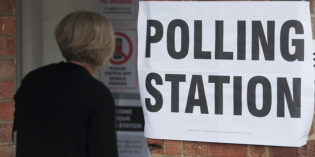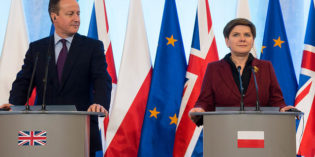Elections and electoral systems

Building an ‘anger radar’: Ideas for better democracy post Brexit
We have so many aspirations for big data and evidence based policy, but apparently a fatally limited capacity to see the obvious: voters were furious about immigration during the EU referendum campaigns. Techniques exist to build better empirical evidence regarding issues that matter to citizens; we should use them or risk a repeat of the referendum, argues Jimmy Tidey. Similar Posts

Let down and left out: Young voters and the EU referendum
The EU referendum campaigns and mainstream media displayed a staggering indifference to younger voters, writes James Sloam. He highlights how the switch to individual voter registration, the timing of the vote, the exclusion of 16- and 17-year olds and the media circus of exaggerated claim and counter-claim all left young people unenthused by the campaign and strongly opposed to […]

We need a root and branch review of referendums in the UK
Assessing the role of referendums is a challenge because they are on the fault-line of representative and other forms of democracy. Katie Ghose argues that more clarity is needed on who triggers them, and proposes three essential reforms for future referendum campaigns. Similar PostsLearning the lessons: What other referendums can teach us about the EU […]

The Brexit debate is far from over: there will have to be a further vote
Britain has voted for Brexit. What comes next is remarkably unclear. James Strong argues that four questions remain, and whether it is a general election or a second referendum, further polls will be required. Similar PostsWhy there should be a general election before Article 50 is triggeredA great or Pyrrhic victory? The dangers ahead for […]

Epitaph for a political chancer: Cameron’s fate examplifies the inability of UK elites to resolve long-run crises
David Cameron’s announcement that he is stepping down as Prime Minister capped a night of unprecedented referendum triumph for the ‘Brexiteers’ on the Conservative right and in UKIP in overthrowing Britain’s 43 year old membership of the European Union. Patrick Dunleavy considers the lessons that Cameron learned too late to save his premiership. Similar PostsWhat […]

The EU referendum as a bad participatory design process
The EU referendum fails as a participatory design process in two important ways, namely that participants are deeply ill informed about the issues at hand, and that participants are unlikely to reflect the makeup of the country as a whole. Jimmy Tidey argues these highlight a broken process and writes that classic participatory design techniques could […]

16 things you need to know about what will happen if we vote to leave the EU
As the referendum on the UK’s membership of the EU draws closer, the result is impossible to predict. Many are asking what, in practical terms, would happen if we vote for Brexit. Alan Renwick explored some key elements of the withdrawal process before the referendum campaign began. Here, he gives a point-by-point overview of what […]

Is direct democracy effective? Yes, if it is citizens who start the process
The EU referendum this week has sparked extensive debates about the pros and cons of direct democracy. But Lucas Leemann writes that landmark votes like this may be the most atypical – and arguably worst – examples of direct democracy. He indicates that in cases where citizens have the ability to launch initiatives and call […]

The real reasons referendums have become so common – and so scary
As 23 June nears there has been increasing frustration around the quality of the debate, and the fact that such a complex constitutional issue is being decided by a binary referendum. Harry Farmer considers why referendums are becoming increasingly popular in Western democracies, and why anxieties around votes on single issues reflect deeper worries about […]

A short handbook of Brexit fallacies: Putting facts in context
The Brexit debate is full of facts, figures, and fallacies. But Albert Weale writes that facts are not enough, and that to make a responsible voting choice, facts need to be fitted into a bigger picture. He looks at 18 different fallacies to see where the logic breaks down in statements that often seem ‘right’ at first glance. […]


 Democratic Audit's core funding is provided by the Joseph Rowntree Charitable Trust. Additional funding is provided by the London School of Economics.
Democratic Audit's core funding is provided by the Joseph Rowntree Charitable Trust. Additional funding is provided by the London School of Economics.